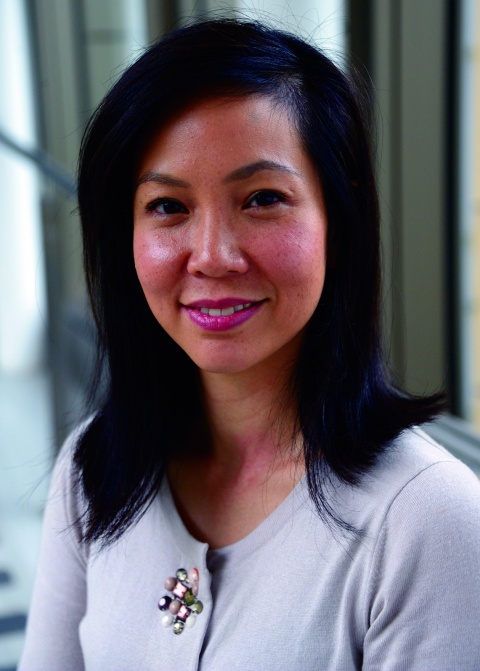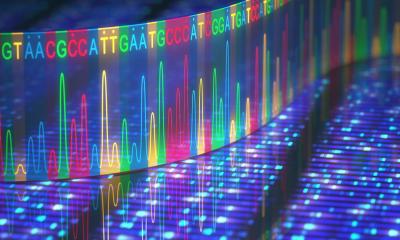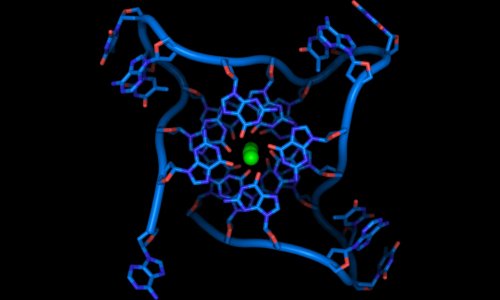Article • Tumour development
In view: Customised breast cancer care
UK-based researchers believe personalised treatment for breast cancer is within sight after uncovering what they say is the most detailed picture to date of which genetic variations contribute to development of the disease.
Report: Mark Nicholls

With colleagues, study leader Dr Serena Nik-Zainal, at the Wellcome Trust Sanger Institute near Cambridge, identified a number of new genes that, when mutated, drive the development of breast cancer tumours.
In what is the largest-ever study to sequence the whole genomes of breast cancers, the team has uncovered five new genes associated with the disease and 13 new mutational signatures that influence tumour development.
The team’s work (published in two papers in Nature and Nature Communications) also reveals what genetic variations exist in breast cancers and where they occur in the genome. The research – an international collaboration which included breast cancer patients from the USA, Europe and Asia – involved analysis of 560 breast cancer genomes – 556 from women and four from men. Dr Nik-Zainal’s team hunted for mutations that encourage cancers to grow and looked for mutational signatures in each patient’s tumour.
They found that women who carry mutations in the BRCA1 or BRCA2 gene indicating an increased risk of developing breast and ovarian cancer, had whole cancer genome profiles that were highly distinctive from each other and were also very different to other breast cancers. She believes that this discovery could be used to classify patients more accurately for treatment. ‘In the future, we’d like to be able to profile individual cancer genomes so that we can identify the treatment most likely to be successful for a woman or man diagnosed with breast cancer,’ Nik-Zainal added. ‘It’s a step closer to personalised healthcare for cancer.’

Researchers, recognising that unpicking the genetic variations between cancers is crucial to developing improved therapies, say the results reveal more about the causes of breast tumours and provide evidence that breast cancer genomes are highly individual. Exactly where mutations occur in breast cancer genomes is also important.
Dr Ewan Birney from the European Bioinformatics Institute collaborated in the research and used computational techniques to analyse the sequence of genetic information held in each of the sample genomes. ‘We know genetic changes and their position in the cancer genome influence how a person responds to a cancer therapy,’ he said. ‘For years we have been trying to figure out if parts of DNA that don’t code for anything specific have a role in driving cancer development. ‘This study gave us both the first large-scale view of the rest of the genome, uncovering some new reasons why breast cancer arises, and gave us an unexpected way to characterise the types of mutations that happen in certain breast cancers.’
The Wellcome Trust Sanger Institute is one of the world’s leading genome centres, while the European Bioinformatics Institute is part of the European Molecular Biology Laboratory (EMBL) and is a global leader in the storage, analysis and dissemination of large biological datasets. It is located on the Wellcome Genome Campus in Hinxton, Cambridge. Professor Sir Mike Stratton, Director of the Wellcome Trust Sanger Institute, said the study takes scientists ‘much closer to a complete description of the changes in DNA in breast cancer and thus to a comprehensive understanding of the causes of the disease and the opportunities for new treatments.’
Profiles:
Dr Ewan Birney is Director of EMBL-EBI (the European Bioinformatics Institute, which is part of the European Molecular Biology Laboratory). His main research areas include functional genomics, assembly algorithms, statistical methods to analyse genomic information and compression of sequence information.
Serena Nik-Zainal MD is a Career Development Fellow (CDF) Group Leader in the Cancer Genome Project at the Sanger Institute in Cambridge and an Honorary Consultant in Clinical Genetics at nearby Addenbrookes Hospital. Having qualified in medicine from the University of Cambridge in 2000, trained as a physician and subsequently specialised in Clinical Genetics, she undertook a PhD at the Wellcome Trust Sanger Institute in 2009 and her research focuses on pursuing biological understanding of the mutational signatures that have been identified in primary human cancers.
04.08.2017





